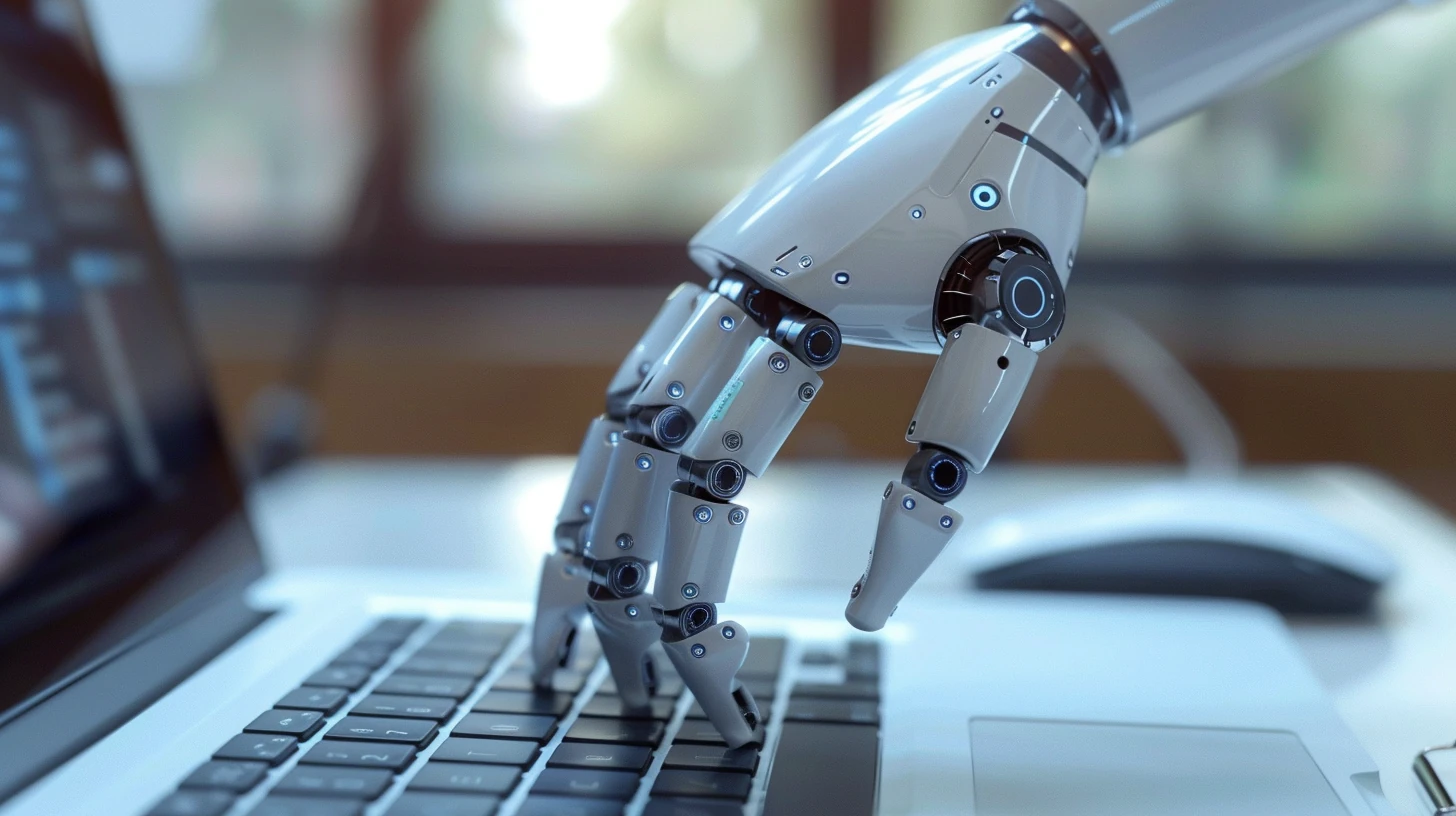

With the rise of Generative Artificial Intelligence, especially thanks to technologies like OpenAI GPT, the concept of “Artificial Intelligence” (AI) is on everyone’s lips. But what exactly is AI?
AI is a field of computer science that focuses on creating systems capable of performing tasks that typically require human intelligence. Some of these tasks include problem-solving, image classification, and natural language processing.
Its implementation in a company can be very beneficial as it leads to significant cost savings by reducing task resolution times and the amount of necessary personnel.
Thanks to its speed and efficiency, AI can handle repetitive tasks much faster than a human could. Additionally, it can perform the work of multiple people simultaneously at a lower cost.
AI can significantly minimize human errors in repetitive and monotonous tasks. This is partly due to processes like training, where the algorithm learns patterns that a human would be unable to detect.
With this, AI achieves precision percentages lower than human error rates, where in specialized classification tasks, it can reach between 70% and 90% accuracy.
AI systems can easily scale to handle an increase in workload without needing to hire more staff. This is especially useful in growing companies or during peak demand periods.
AI does not need breaks or vacations, allowing for continuous operation 24 hours a day, 7 days a week. This is crucial for customer service, technical support, and operations that require constant availability.
AI systems can customize experiences and services for each individual client, improving customer satisfaction and loyalty. For example, in marketing, AI can tailor advertising campaigns to the individual preferences of consumers.
Some common use cases of AI include:
Widely used to answer frequently asked questions, resolve basic problems, or even guide customers without human intervention.
AI can analyze large volumes of data to generate reports, detect patterns, etc., as well as perform tasks like information extraction or document classification.
Used for predicting when machine maintenance will be necessary, thus avoiding unexpected downtime, or even for inventory management and routing.
Analysis of medical images like MRIs or X-rays to extract patterns and detect or even discover new diseases.
At Raona, we are experts in applying AI tools to the problems of other companies. Recent cases addressed by the AI team include:
Aimed at automating the process of creating a monthly menu for a multinational specializing in menus and catering, following certain requirements. To solve this, we designed an evolutionary algorithm with these restrictions implemented in the evaluation function of each individual.
The HR department receives many requests or questions that often take time to answer, taking time away from their other tasks. Therefore, an HR bot was developed using OpenAI and Retrieval Augmented Generation (RAG) for both response generation and intent analysis.
Many companies have a large number of unclassified documents, a task often done manually. Therefore, we developed a classification model by fine-tuning Google’s BERT model for automatic document classification based on client-defined categories for massive document classification.
To allow the doctor to focus on examination and patient care, a model was developed capable of transcribing conversations between them. This generates a report of the conversation and extracts the codes of each disease or treatment using RAG with OpenAI GPT.
Before implementing AI, it is crucial to define what goals you want to achieve. This helps select the appropriate technology and measure the success of the implementation.
Data quality is fundamental to the success of any AI project. Ensure you have clean, well-organized, and relevant data for the problems you want to solve.
It is important to train employees to understand how to work with AI systems and how to interpret their results. This maximizes benefits and minimizes resistance to change.
AI implementation must consider ethical aspects such as privacy and transparency. Ensure compliance with regulations and maintain the trust of your customers and employees.
AI is transforming the business world by offering efficient and cost-effective solutions for task automation. From customer service to manufacturing and healthcare, AI has the potential to significantly improve productivity and accuracy in various industries.
At Raona, we have demonstrated how AI can address specific problems and improve operational processes. However, to fully leverage these technologies, it is essential to have a clear strategy, invest in quality data, and ensure ethical and transparent implementation.
Adopting AI is not only a competitive advantage but a necessity for companies looking to stay relevant and efficient in an increasingly digitalized market.
Contact us to get started!
At Raona, we have more than two decades of experience collaborating with large entities. We have completed more than 100 projects and assisted 200 companies, which makes us the most awarded company in intranet projects in Spain. Contact us and we will offer you advice without any obligation.


José María Prieto
Compartir en Redes Sociales
© Raona 2024. All Rights Reserved